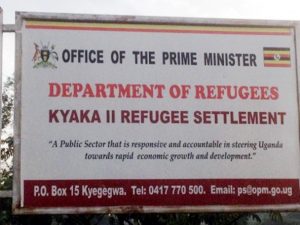Preparing for our research visit to Rwanda and Uganda
 by Jessica Hawkins Lecturer in Humanitarian Studies @HawkinsJessicaR
by Jessica Hawkins Lecturer in Humanitarian Studies @HawkinsJessicaR
Taking students on fieldwork can present a minefield of ethical and practical challenges (see Roger Mac Ginty’s blog on this). This is multiplied ten-fold when your research sites are areas which have experienced or still face humanitarian crises. Therefore, embarking on a research visit to Rwanda and Uganda with our Masters students demands a great deal of thought and consideration. As a result, the HCRI has established a module called Humanitarianism in Practice. The visit is the key component of the trip, but would not be possible without the theoretical elements which the academic side of the module has provided.
When I embarked on a Masters in this field many years ago, there was one main issue that I faced compared to many of my peers – I completely lacked first-hand experience of the countries I was trying to write and talk about. This put me at a disadvantage in tutorials because I didn’t feel that I could challenge any of the theories or discourses which formed part of our learning. I had no claims to make, let alone the evidence to support them.
Since then, I have embarked on many research visits, yet this issue still presents itself to many of our students at the HCRI. The first aim of this new module is to provide our students with this experience. However, the visit does not stand alone. Students are required to interrogate their experiences in the field through a grounded theory approach, resulting in a written report on the state of humanitarian action in these two countries. It is also hoped that the students will disseminate their experiences through blogs such as this.
Secondly, the module, available to all three pathways on the Masters course, also aims to bring together the different theories and concepts which they were learning in their other courses, to test their viability and strength in a practical setting. Thirdly, the academic side of the course aimed to cover an element which does not feature in any of their other modules, namely the faces of humanitarians. Who are they? Why do they do this type of work? What are the implications of this type of job? There is much written on the effects of wars and disasters on victims, rightly so, but one of our lectures considered the effects on humanitarians, in particular the support regarding mental health. The students were asked to challenge themselves about who they were as humanitarians. This resulted in some excellent videography work which provided light relief to a heavy topic.
Finally, we have asked ourselves how we might be perceived by humanitarian actors and recipients alike. Obviously, all our hard work may still result in some unexpected outcomes, but we have prepared ourselves the best we can for the ethical and practical challenges that we may encounter.
The next step in our module is now to actually conduct our research visit, going to Rwanda first, followed by Uganda.
To be continued …


0 Comments